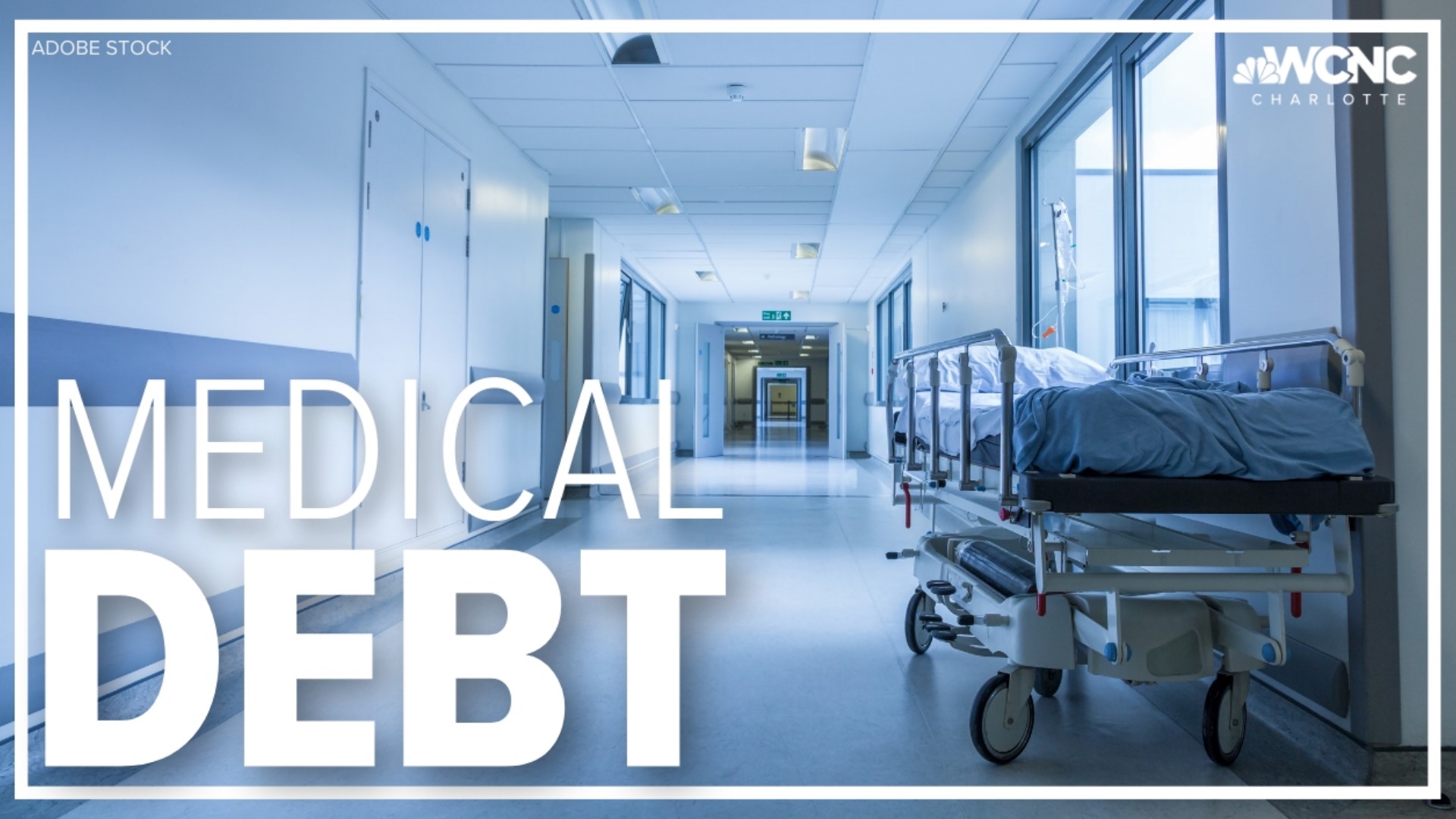CHARLOTTE, N.C. — A town hall hosted by North Carolina's state treasurer about the crippling effects of medical debt drew Charlotte area leaders and patients who know first hand about the debilitating effects of mounting bills.
"I was forced to lose my day care center, and I had to pivot to home based child care ...from keeping 100 children to now to eight kids," Brenda Campbell of Charlotte said.
Campbell was one of a handful of speakers who talked about how much she had lost after her disabled husband's medical bills ballooned during the pandemic. She told the audience she amassed $23,000 in debt and almost shut down her day care business in 2021.
"The pandemic medical debt -- it was heartbreaking," Campbell shared.
State Treasurer Dale Falwell hosted the gathering at Central Piedmont Community College to talk about why he believes lawmakers should be doing more to protect patients.
Leaders like First Baptist Church Pastor Ricky Woods and Mecklenburg County Commissioner Pat Cotham were on hand because about one in five families in the surrounding Charlotte-area are in medical debt collections. In Mecklenburg County alone that number rises to one in four for communities of color.
"This is a problem that has a lot of tentacles and it can damage life in many different ways," Cotham told people in the audience.
The forum came two days after state lawmakers in Raleigh refiled the Medical Debt De-Weaponization Act -- which was originally filed as a bill in May of 2022. If passed into law, it would strengthen patient access to charity care and limit unfair tactics in debt collection and exorbitant interest rates on medical debt.
"I'm still working up two and a half jobs, I don't make enough money, " another attendee at the town hall said during public comment. She explained how her credit dropped after a small cut on her foot led to $10,000 in medical complications.
Right now, North Carolina ranks in the bottom half of states for consumer protections. The Medical Debt De-Weaponization Act would make the state second in the nation for consumer protections against medical debt.
Contact Fred Shropshire at fred@wcnc.com and follow him on Facebook, Twitter and Instagram.

